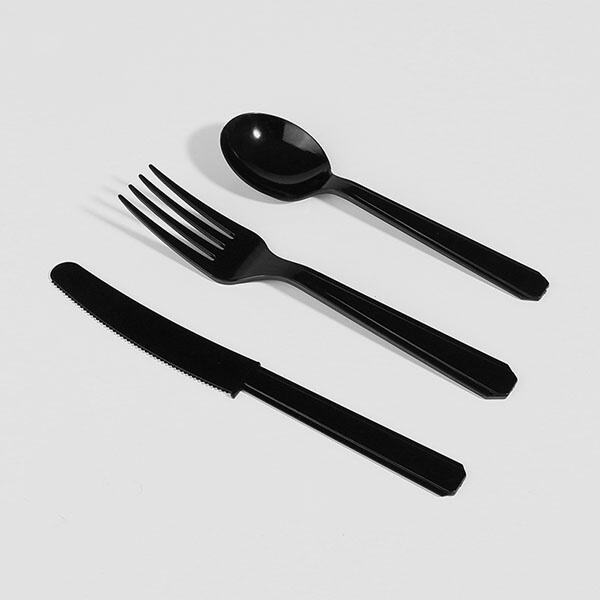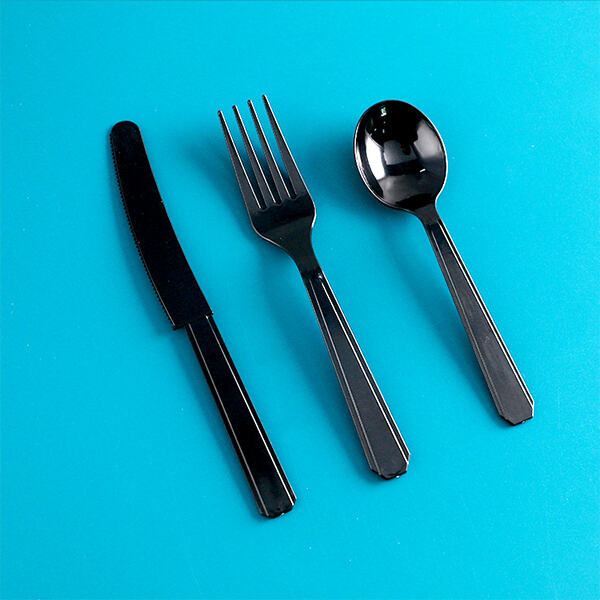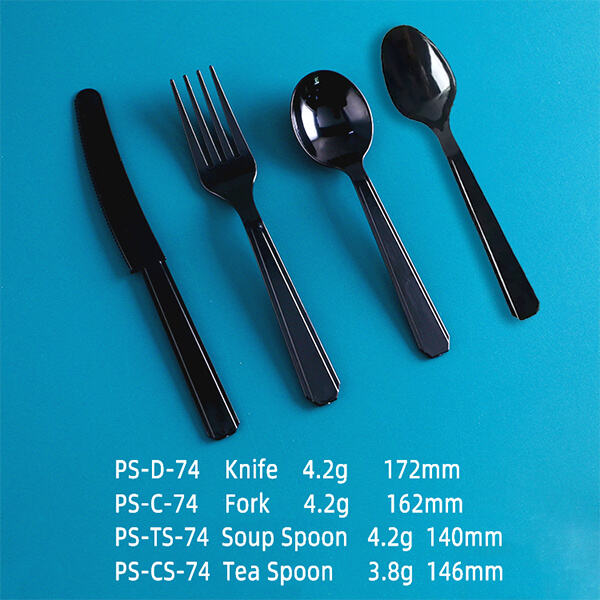We use plastic eating utensils when we go out to eat at a restaurant or order food to take home some times. Plastic utensils, the typical fork-spoon-knife trio were created in plastic materials. It is bulk plastic cutlery so convenient because we can use them only once then throw it away. Did you realize that by using plastic utensils we are causing a lot of environmental damage? Let’s delve deeper into the importance of this concept!
Many of us think we can afford to use plastic utensils only once and then throw them away. However, the disturbing thing is that plastic literally takes decades to centuries,, or even more, to decompose. Certain plastics can take several hundred years to totally decompose! This Intlpack is an incredibly long time, meaning that the plastic utensils we discard of today may still be inhabiting a landfill or floating among waves in the ocean decades down the line.
The problem is that when we do throw away these plastic utensils they mostly land in habitats where animals and plants get hurt. Birds: If fish actually SAW the plastic and wished to dive straight into it, we might be better able tp understand why they wanted in there so desperately. Even fish and other creatures of the sea have minuscule pieces of plastic inside them, scientists say. This cutlery set plastic is alarming, as it shows that fish and other seafood may contain plastic particles just like the salt.
What then, can the rest of us do? Others think that instead of plastic ones, we should use reusable utensils. The Intlpack Shaping Sustainable Futures reusable utensils made to be used more than once will ultimately serve as an environmentally friendly option. But, it is important to note that even reusable utensils can cost the planet. Washing the reusable utensils every time we use, uses up water and energy.

This Intlpack plastic cutlery sets is the reason, why we are asked to be less concerned when it comes to using plastic vessels and serving utensils specially while heating food in microwave. Heat leads to more chemicals leaching from the plastic. You also want to steer clear of putting hot beverages into plastic cups or bottles as the heat will cause more harmful chemicals to leach out. We ought to do all that is in our power to be safe.

Well, so what are some better alternatives to use for utensils? Products that are virtuous, such as utensils made of bamboo or woodamine. They can be grown sustainably and with no harm to the environment, their plastic comparatives degrade all too easily. This cutlery plastic set is, of course a better choice for the earth.

An alternative of that, use utensils made from cornstarch, or other types o plant materials. The plastic cutlery good news is that these products are biodegradable, as such they will break down faster in nature. But — and this is a big but — you need to verify that these implements are actually compostable, rather than simply labeled as “compostable” with no data. That takes precedence over everything and we only want to make good decisions for the environment!
The main products of Intlpack are plastic cups, yogurt containers, biscuit bucket and Plastic utensils. They also offer meal prep containers. Intlpack offers a wide range of customized services, including details of colors, patterns, packaging materials, etc. according to your individual requirements.
Intlpack has a stringent management system and has passed ISO9001 BRC Plastic utensils quality management system 14001 environmental system 45001 safety program social responsibility program SGS FDA FSC BSCI and other certifications
Drawings are completed quickly and samples are produced within 5 days. They are Plastic utensils. At present, Intlpack are able to produce more than 500 types of plastic containers in various sizes, and are widely employed in the catering and food packaging industries.
Intlpack's focus has been on the Plastic utensils and manufacture of packaging for food and beverages since its establishment on the 11th of November, 2011. Intlpack has a design and RD department that is working to create plastic containers for customers.